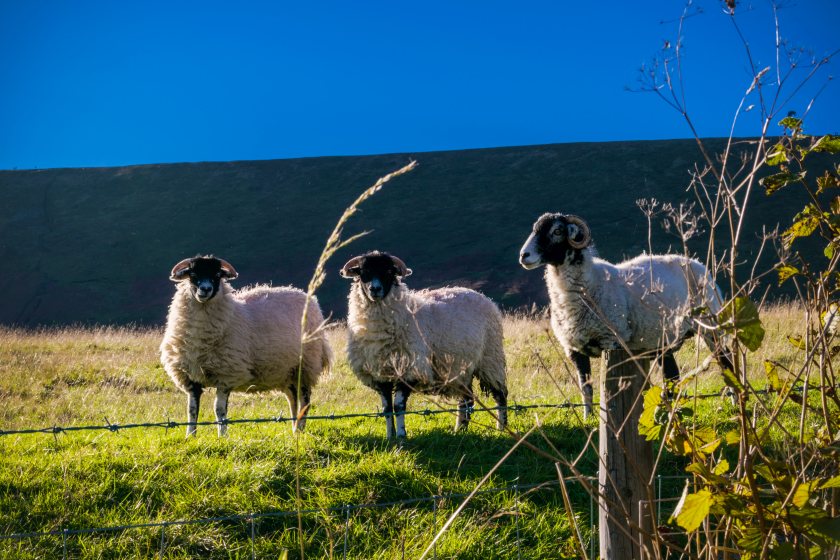First UK case of bluetongue 'BTV-8' since 2008 confirmed in sheep

Farmers are being reminded to stay alert after the BTV-8 strain of bluetongue virus was detected in a sheep near Launceston, Cornwall — the first case of this strain in the UK for 17 years.
The Animal and Plant Health Agency (APHA) confirmed the case on Friday (26 September) following reports of “suspicious clinical signs”. Movements on and off the farm are now being traced and tested to prevent further spread.
Bluetongue is spread by biting midges and, while it poses no risk to humans or food safety, it can be fatal to sheep, cattle and other livestock.
Outbreaks also trigger strict restrictions on animal movements, creating significant knock-on effects for farm businesses.
Earlier this month, a ram in Cornwall tested positive for BTV-3, another strain of the disease. Since July 2025, there have been 78 confirmed cases of BTV-3 in England and two in Wales. This latest case marks the return of BTV-8 after 17 years.
The Pirbright Institute, which leads on viral disease research, notes that bluetongue was once considered “exotic” to the UK until an outbreak of BTV-8 swept across Europe from 2006 to 2009.
Britain first confirmed the strain in 2007, but a vaccination programme the following year played a crucial role in halting its spread.
Symptoms include ulcers in the mouth and nose, excessive drooling, eye or nasal discharge, and swelling around the lips, tongue and head. Farmers are urged to watch closely for signs and report concerns immediately.
While the Cornwall case has put England in the spotlight, Wales is also tightening its guard. Farmers there have been warned after two separate cases of bluetongue were detected in cattle herds in Powys and Monmouthshire. Both holdings are under restriction while surveillance continues.
In total, 80 cases of bluetongue have been confirmed across the UK this vector season, with the vast majority — 78 — in England.
APHA is reminding farmers that bluetongue is a notifiable disease and any suspicion must be reported without delay.
Since July, the whole of England has been designated as a bluetongue restricted zone (RZ), meaning livestock can be moved within England without a licence or testing.
Movements into Wales, however, remain tightly controlled: Vaccinated cattle and other eligible species can move from England into Wales under a general licence if they show no clinical signs of disease, without needing a pre-movement test.
Meanwhile, non-vaccinated stock still requires a negative test and a specific licence before crossing the border.
Sheep must be tested before movement, as no vaccine currently meets the requirements to allow their exit from the restricted zone.
Farmers are urged to stay vigilant, monitor animals for signs of illness, and seek veterinary advice if in doubt to help protect flocks, herds, and the wider industry.








